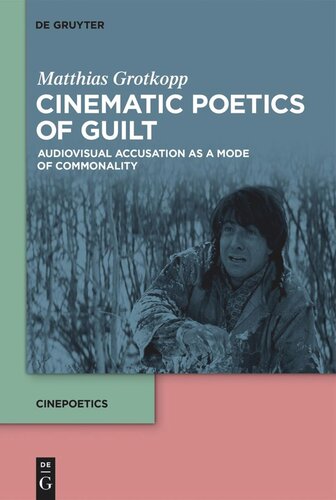

Most ebook files are in PDF format, so you can easily read them using various software such as Foxit Reader or directly on the Google Chrome browser.
Some ebook files are released by publishers in other formats such as .awz, .mobi, .epub, .fb2, etc. You may need to install specific software to read these formats on mobile/PC, such as Calibre.
Please read the tutorial at this link: https://ebookbell.com/faq
We offer FREE conversion to the popular formats you request; however, this may take some time. Therefore, right after payment, please email us, and we will try to provide the service as quickly as possible.
For some exceptional file formats or broken links (if any), please refrain from opening any disputes. Instead, email us first, and we will try to assist within a maximum of 6 hours.
EbookBell Team

4.8
104 reviewsHow do the temporal and dynamic patterns of media forms and practices create complex constructions of meaning, identity and value? How can we describe the way cinematic images generate and transform the affectively grounded structures that survey, confirm or revise a political community’s horizon of values?
Using the exemplary case of feelings of guilt, the author develops an approach that makes patterns of audiovisual compositions intelligible as aesthetic modulations of moral feelings. A sense of guilt is presented here as neither an individualistic psychological emotion nor an external social mechanism of control but as a paradigmatic case for understanding politics and history as based upon embodied affectivity and shared relations to the world.
By taking three distinct examples – German Post-War cinema, Hollywood Western and films on climate change – patterns of audiovisual composition and the inherent calculation of affect are analyzed as practices shaping the conditions of possibility of political communities and their historicity.